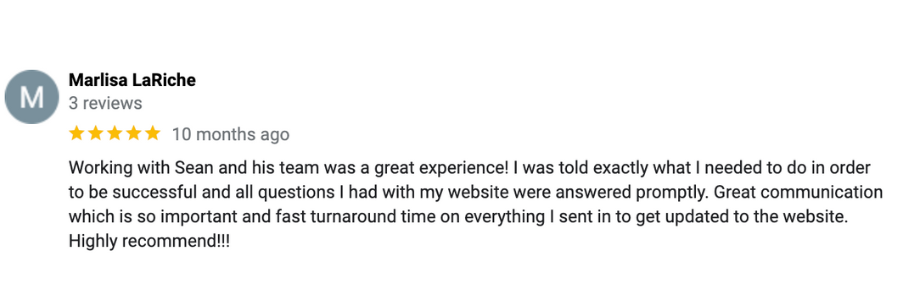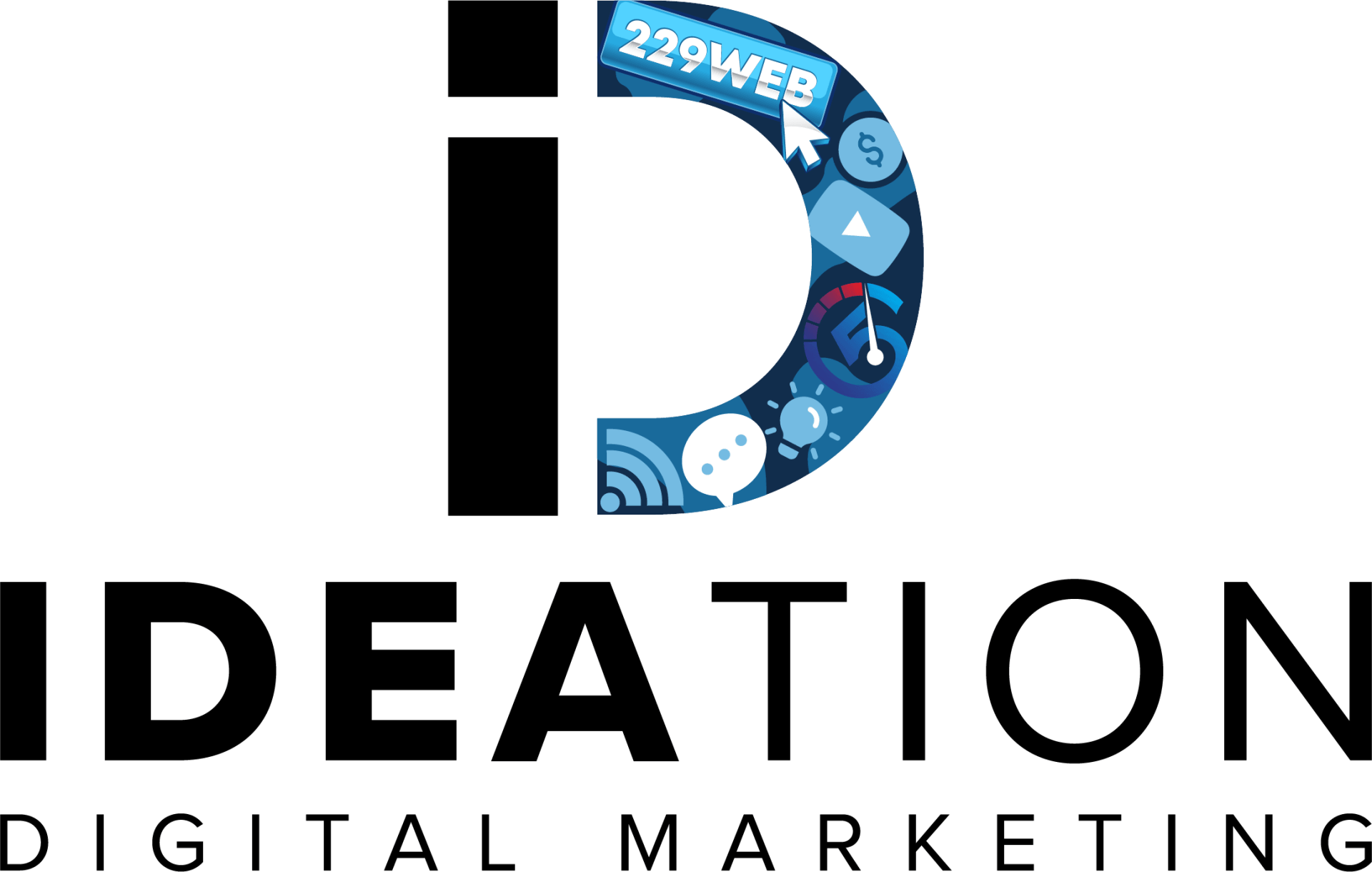Ideation Digital specializes in strategic marketing services that drive results for your business or organization, let us show you how our SEO Services can help grow your business on auto-pilot.
Is your online presence strong but your sales numbers remain disappointingly low?
Do you feel invisible online and know it’s affecting your sales growth?
Wondering if your business website actually brings in any customers?
Invested in online marketing but not seeing any increase in sales or customer inquiries?
The problem is there is more competition than ever for attention online and having a "good enough" online presence isn't good enough to get you customers anymore.
At Ideation Digital marketing we focus on building websites and SEO marketing programs that get you customers and leads, because why else would you invest in your small business marketing?
We understand the business saving impact of knowing you are getting consistent online leads from your website and online marketing. We are small business owners too.
That's why we only create online marketing that is optimized to produce sales and results. A.I. powered organic and comprehensive marketing systems that leverage the power of A.I. to create an online presence that actually makes the phone ring.

Want to discover how much not having an A.I. powered organic marketing system is costing your business already?
Get our digital marketing cheat sheet, made from a decade of experience in the industry, and customized for your business with exact steps to get consistent leads from your online marketing and finally feel like your online marketing investment is worth it!
How It Works
1. Analyze and Create a Strategy
We audit your existing marketing and needs, and help you figure out where your best opportunities are and agree on a plan that fits your goals.
2. Fast Implementation
Based on your strategy, we create your website and other marketing assets within a week so that you get leads FAST, and we offer unlimited editing so that your online presence always looks its best.
3. You Get Leads
Our expert team implements effective online marketing strategies to bring in leads and improve your local visibility, putting you in front of the right people at the right time so they actually reach out.
4. We Make Sure You Keep Getting Leads
We continue to monitor and actively manage your website, SEO, and digital marketing campaigns, allowing you to focus on your business while it shines online.
Here's what you get working with us:
Trust
We only recommend products and services that align opportunities with your goals. We focus on results for your business first.
Freedom
We manage all campaigns and assets for you. Need an update? No problem, send us an email, a text, or we will even create you a slack channel.
Growth
We don't just build websites, create SEO plans, and run ads for online marketing campaigns, we create comprehensive a.i. powered organic and paid marketing programs that bring you leads and customers.
See What Small Business Owners are Saying About Working with Ideation Digital








Social Media Marketing Strategy Development: Tips and Techniques
In an age defined by digital interaction and
connection, achieving success in business hinges on effective social media strategy. Now more critical than ever in 2024, social media serves as a powerful channel that can launch your brand into new markets or deepen trust with existing customers. Think it's too complicated for you to handle? Make no mistake – with our insightful tips and techniques featured in this blog post, you'll be an expert at developing robust social media marketing strategies in no time. Brace yourself and dive into the world of likes, shares, tweets and stories; where conversion rates skyrocket almost as fast as heart emojis during a viral campaign. Prepare to revolutionize your online presence today!

Developing an effective social media marketing strategy begins with establishing clear objectives and goals that align with your overall marketing objectives. By understanding your target audience, conducting a competitive analysis, and utilizing social media analytics, you can refine your strategy, tailor it to each platform's strengths, and track performance to achieve success in building brand awareness, engaging communities, selling products or services, providing customer service, advertising to target audiences, and measuring brand sentiment. Make sure your strategy focuses on delivering value to your audience through quality content rather than quantity, and consider leveraging influencers and creating a compelling brand story.
Understanding Your Target Market
To develop a social media marketing strategy that resonates with your audience, it is important to understand who they are. Conducting an audience analysis can yield insights into their interests and behavior patterns and enable you to tailor your messaging accordingly.
It's similar to fishing; you want to know what kind of fish you're trying to catch before selecting bait or lures.
Start by collecting demographic data about your audience. These include details such as age, gender, income levels, education level, occupation and location information such as country or city. Additionally, analyzing psychographic information like personality traits which can give insight into the kinds of content or tone that will resonate with them.
These data points enable businesses to build User Personas – fictionalized descriptions of key customers or audiences- which are invaluable in developing effective social media marketing strategies. Creating a User Persona involves detailing the demographics, interests, pain points and goals of a representative customer segment. Once this task is finished, identifying pain points -issues your audience faces - can help create content and offers tailored to their needs.
Having established how to understand your audience's profile through data collection and behavior analysis, evaluating the competition on social media related to your business can give you an advantage in terms of market differentiation.
Analyzing Your Audience Demographics
One of the biggest advantages of social media marketing is the ability to target specific audiences with tailor-made content. Therefore, before designing any strategy or launching a campaign, it's essential to analyze your audience's demographics.
Think of it as throwing a dart in the dark versus hitting the bullseye by knowing where to aim.
You can start audience analysis by collecting basic demographic information like age, gender, income level, education, and geographic location. This data provides insight into what sort of content would appeal to their interests.
However, going beyond the basic data lets you create persona-based views of your customer base; these profiles are much more detailed and unique.
For example, you can identify common hobbies or interests that could help create engaging posts or campaigns. Social listening and analytics tools help with this critical process.
Conducting a
Competitive Analysis
Your business doesn't operate in a vacuum. There are likely already established competitors operating successfully on social media platforms. Analyzing competition will provide valuable insight into the tactics they use, gaps in their strategy, and opportunities for growth for your brand.
There are various ways to evaluate competitors' social media presence. One tip is to look at follower count and engagement rates; this will give a sense of how active each competitor is on different platforms.
Another way is to use tools like BuzzSumo that allow inputting competitors' domains to track their performance. With this method, you'll learn which content types perform well (top pages), which influencers generate engagement (top authors), and which topics get traction.
Ultimately, analyzing competitors allows innovation through emulation and differentiation.
While some might argue that copying similar strategies may seem unoriginal, successful businesses have always looked towards their competition for inspiration on improvement. But then again, imitation only goes so far in differentiating one’s brand from another in ideal circumstances.
- According to HubSpot, 92% of marketers claimed that social media marketing was important for their business, with 80% indicating their efforts increased traffic to their websites.
- As per the Statista survey in 2020, over 3.6 billion people were using social media worldwide, a number projected to increase to almost 4.41 billion by 2025.
- A report by Emarsys in 2019 indicated that for 71% of small business owners, managing and improving the online presence of their business is one of their top goals in relation to social media marketing.
Creating Content and Choosing Platforms
In today's digital era, creating compelling content is critical to a company's social media marketing strategy. Creating high-quality and engaging content will attract potential customers to your brand and help increase your online reputation. However, it's not just about producing great content - it also needs to be distributed to the right platforms. Identifying the appropriate platforms to promote your business and ensuring that the content aligns with each channel's culture and audience creates organic engagement and increases brand awareness.
Planning Effective Content Strategy
Planning an effective content strategy involves setting objectives for both the short-term and long-term plan. It would be best if you start with a clear understanding of your target audience, their preferences, interests, pain points, and motivations.
Once you have identified your target audience, research what type of content works best on various social media platforms. What sort of images and videos do they prefer? What writing style resonates with them?
Your content buckets should correspond well with your brand voice and contribute to your social media goals.
To increase customer engagement, consider user-generated content while building out your messaging. For instance, using customer reviews or testimonials can create legitimacy beyond professional marketing team involvement.
Let's say you own a restaurant; you can implement Q&A sessions with prominent chefs or write blog posts on specific recipes that use your ingredients.
Creating a consistent editorial process allows establishing a clear routine throughout workstreams like cross-functional ideation or shortlisted topic brainstorming amongst employees. This approach helps save time and energy by establishing organization-wide expectations surrounding social marketing targeting approaches.
A successful content strategy hinges upon maintaining visibility along the entire customer experience as they progress to purchase. In other words, the content should generate conversations and refine the company's social media sales funnel.
Selecting the Best Social Media Channels
Social media is a critical component in every brand's marketing strategy. However, advertising your products or services on all social media platforms might not be financially prudent or effective, given the specifics of each platform. To maximize your reach and engagement potential while still managing resources efficiently, it's crucial to select the most suitable social media channels and create a tailored marketing approach for each.
When picking channels, consider factors such as your target audience demographics, content type, budget, and business objectives. For instance, Facebook might be an excellent channel if you're targeting age groups 25-65 because the majority of its users lie in this range. However, if you're marketing to Gen Z & Millennials then Instagram and TikTok(Most popular social network for teenagers in 2021) are great options because of their trendy nature.
One tool that makes selecting channels easier is using a table to summarize key metrics like audience size, age range, platform strengths, etcetera. Having data available in a tabulated format simplifies decision-making and allows for more accurate assessments.
- Social media is an essential aspect of any brand's marketing strategy in 2024. However, to make the most of your resources and effectively engage with your target audience, it is crucial to carefully select the appropriate social media platforms and tailor your marketing approach for each one. Factors such as demographics, content type, budget, and business objectives should be considered when choosing channels.
For example, Facebook can be a valuable channel if you are targeting age groups between 25-65, as the majority of its users fall within this range. On the other hand, if you are targeting Gen Z and Millennials, platforms like Instagram and TikTok, which have gained popularity among teenagers, would be more suitable due to their trendy nature.
To simplify the decision-making process and make accurate assessments, using a table to summarize key metrics such as audience size, age range, and platform strengths can be highly beneficial. Having data presented in a tabulated format allows for better understanding and facilitates selecting the most effective social media channels for your brand's marketing efforts.
Implementing and Optimizing Your Strategy
After identifying which social media platforms align with your goals and target market it's time to implement your strategy.
The following steps should help you accomplish this:
Conduct market research and analyze competitors' strategies – what works for other businesses within your industry?
Define SMART (Specific - Measurable - Assignable - Relevant - Time-bound) goals such as the number of leads you expect from social media campaigns.
Outline tactics that would achieve your SMART goals
Identify key performance indicators (KPIs) that will define success.
Create engaging content that adheres to best practices such as social video creation tips mentioned earlier.
Monitor progress regularly using platform analytics tools such as Twitter Analytics or LinkedIn Insight.
Adjust your tactics depending on the results obtained
Iterate and improve continuously, making necessary alterations to achieve better output.
For instance, a strategy for Instagram might entail creating high-quality visual content that features engaging captions, messaging and hashtags relevant to your brand personality, and monitoring shareability metrics. Meanwhile, LinkedIn may require you to focus more on thought leadership and engagement with industry peers by sharing valuable insights within groups such as alumni networks.
Remember: Developing an excellent social media marketing strategy is not a one-time task. It's an ongoing process that must adapt to the ever-changing nature of social platforms.
Now that you know how to implement an effective social media marketing strategy let’s dive deeper into some tactics, techniques and budgeting strategies that can help fast-track growth.
Identifying the Right SEO Company for Your Needs
In the vast landscape of SEO services, finding the right company to partner with is crucial. This decision can make or break the success of your SEO efforts. So, how do you go about identifying the right SEO company for your needs?
First and foremost, thoroughly research and analyze potential companies. Look at their track record, case studies, and client testimonials to assess their experience and expertise in the field. Check if they have worked with businesses similar to yours or in your industry, as this can demonstrate their understanding of your specific needs and challenges.
Transparency is another important factor to consider. A reputable SEO company should be open and honest about their strategies, providing clear explanations of the techniques they use and why those approaches are beneficial for your website. Be wary of companies that promise quick results or use unethical tactics that could potentially harm your website's reputation.

Tactics, Techniques and Budgeting for Growth
Having discussed the importance of social media strategy and its cardinal elements let's explore some tactics, techniques, and budgeting for growth. Creating a social media marketing strategy is like laying out a blueprint for achieving your marketing goals. Subsequently, determining the right set of tactics and techniques to execute that strategy is crucial in ensuring the success of that plan.

Firstly, one must tailor the social media channels and platforms so they align with their target audience. It's not merely about being present where the audience spends the most time on; rather, it requires substantial research into what type of content your intended audience prefers.
For instance, if you're selling a beauty product targeted at millennial women who enjoy picture-perfect visual content then you might want to prioritize aesthetically pleasing visuals like Instagram.
It also helps to create a strong content calendar that resonates with such preferences while tracking analytics meticulously. This way, optimizing future strategies becomes possible while simultaneously cutting out aspects that are under-performing.
Most importantly, budget allocation is an essential aspect of executing the perfect social media marketing strategy. Determining how much finances to allocate towards each facet - paid promotion or influencer partnerships - should be evaluated based on your unique needs or business objectives.
Bear in mind that your budget will determine how many people your campaign can potentially reach across different platforms: A starting point could be dividing your resources among each platform:
- Facebook.
- Instagram.
- Twitter.
- LinkedIn.
This table below provides an average cost per click (CPC) on each platform:
| Platform | Average CPC |
|---|---|
| $0.50-$2 | |
| $0.70-$1 | |
| $0.50-$2 | |
| $2-$7 |
However, these are just basic guidelines – marketing objectives and target audience preference should dictate budget allocation.
Think of it as a chef preparing a new dish. The chef not only needs to know the number of guests being served but also their dietary preferences, resources on hand, and allergies. Similarly, providing for your audience's social media platform preferences is essential while optimizing budget allocation.
In summary, the right social media marketing tactics leverage available tools and resources to reach targeted audiences using preferred platforms and tailored content calendars. Meanwhile, strategic budgeting allocates resources to achieve specific marketing goals with effective return on investment (ROI).





